What Food Is Good For Your Eyes? Discover the essential nutrients and delicious foods that promote optimal eye health and protect your vision, brought to you by FOODS.EDU.VN. Fuel your body with the right foods and lifestyle choices to improve your eyesight and safeguard against age-related macular degeneration, cataracts, and other eye conditions. Dive in to uncover the power of antioxidants, omega-3 fatty acids, and key vitamins for long-lasting eye health, and explore FOODS.EDU.VN for more in-depth culinary knowledge, healthy recipes, and dietary advice.
1. Why Is Food Important for Eye Health?
The significance of food for eye health cannot be overstated. Just as a well-balanced diet fuels your body, it also nourishes and protects your eyes. Nutrients found in various foods play a vital role in maintaining optimal vision and preventing eye diseases. According to the American Academy of Ophthalmology, a diet rich in vitamins, minerals, and antioxidants can significantly reduce the risk of developing age-related macular degeneration (AMD), cataracts, and other vision problems. Ensuring you consume the right foods is a proactive step toward preserving your eyesight and overall well-being.
Good nutrition supports eye function, protects against damage, and ensures long-term vision health. Explore the world of culinary wellness with FOODS.EDU.VN to discover delicious ways to enhance your visual health.
1.1. How Does Nutrition Affect Vision?
Nutrition profoundly impacts your vision through several mechanisms. Vitamins and minerals act as antioxidants, combating oxidative stress and inflammation that can harm the eyes. For instance, Vitamin C, found abundantly in citrus fruits and bell peppers, helps protect against cataract formation by neutralizing free radicals. Similarly, omega-3 fatty acids, prevalent in fish like salmon and tuna, contribute to the health of the retina and reduce the risk of dry eye syndrome.
Lutein and zeaxanthin, carotenoids found in leafy green vegetables, protect the macula from harmful blue light, thereby reducing the risk of age-related macular degeneration (AMD). Zinc, present in foods like lean meat and nuts, aids in the transportation of vitamin A from the liver to the retina, essential for producing melanin, which shields your eyes from UV damage. According to a study published in the Archives of Ophthalmology, individuals with higher dietary intake of lutein and zeaxanthin had a significantly lower risk of developing advanced AMD. Therefore, the nutrients you consume directly influence the structural and functional integrity of your eyes.
1.2. What Are the Key Nutrients for Eye Health?
Several key nutrients are essential for maintaining and improving eye health. Incorporating these into your diet can provide significant benefits for your vision.
- Vitamin A: Crucial for vision, particularly in low light. It also supports the proper functioning of the cornea.
- Vitamin C: A powerful antioxidant that protects against free radical damage and reduces the risk of cataracts.
- Vitamin E: Another antioxidant that safeguards the eyes from oxidative stress.
- Lutein and Zeaxanthin: Carotenoids that filter harmful blue light and protect the macula.
- Omega-3 Fatty Acids: Essential for retinal health and reducing inflammation, which can prevent dry eye syndrome.
- Zinc: Aids in transporting vitamin A from the liver to the retina, crucial for melanin production.
Ensuring your diet includes these nutrients can significantly enhance your eye health. For comprehensive meal plans and recipes rich in these nutrients, visit FOODS.EDU.VN and discover how to nourish your eyes through delicious, nutritious foods.
2. Top Foods for Optimal Eye Health
What specific foods should you incorporate into your diet to ensure optimal eye health? This section highlights the top foods packed with essential nutrients that support vision.
2.1. Fish: Omega-3 Powerhouse
Fish, especially fatty fish like salmon, tuna, and mackerel, are excellent sources of omega-3 fatty acids, which are vital for eye health. Omega-3s help reduce inflammation and support the function of the retina. According to a study in the American Journal of Clinical Nutrition, individuals who consumed higher amounts of omega-3 fatty acids had a lower risk of developing age-related macular degeneration (AMD). Aim to include fish in your diet at least twice a week to reap these benefits.
Omega-3 fatty acids found in fish contribute to overall eye health, and you can find a variety of fish recipes tailored for eye health on FOODS.EDU.VN.
2.2. Leafy Greens: Lutein and Zeaxanthin Sources
Leafy green vegetables such as spinach, kale, and collard greens are rich in lutein and zeaxanthin, powerful antioxidants that protect the macula from harmful blue light. These carotenoids also reduce the risk of chronic eye diseases like AMD and cataracts. Research published in the British Journal of Ophthalmology indicates that higher intakes of lutein and zeaxanthin are associated with a lower risk of developing advanced AMD.
Incorporating leafy greens into your daily meals can significantly boost your eye health. Discover innovative recipes featuring these greens on FOODS.EDU.VN.
2.3. Eggs: Zinc and Antioxidant Rich
Eggs are not only a versatile food but also a great source of zinc and antioxidants, particularly lutein and zeaxanthin found in the yolk. Zinc helps the body absorb and utilize these antioxidants, protecting the retina from damage. A study in the Journal of Nutritional Biochemistry highlighted that the lutein and zeaxanthin in eggs are highly bioavailable, making them an effective way to improve macular pigment density.
Adding eggs to your diet is an easy way to support eye health. Explore delicious egg-based recipes designed to maximize nutritional benefits at FOODS.EDU.VN.
2.4. Carrots: Beta-Carotene Booster
Carrots are well-known for their high beta-carotene content, a type of vitamin A that is essential for good vision. Vitamin A helps the eyes adjust to light changes and protects against night blindness. According to the National Eye Institute, vitamin A deficiency can lead to serious eye problems. Incorporating carrots into your diet, whether raw, cooked, or juiced, is a simple way to ensure you get enough of this vital nutrient.
Enjoy the vision-boosting benefits of carrots with creative recipes available on FOODS.EDU.VN, making it easy and enjoyable to maintain healthy eyes.
2.5. Citrus Fruits: Vitamin C Champion
Citrus fruits like oranges, lemons, and grapefruits are packed with vitamin C, a powerful antioxidant that protects against free radical damage and reduces the risk of cataracts. The Age-Related Eye Disease Study (AREDS) found that vitamin C, along with other nutrients, can slow the progression of AMD. Adding citrus fruits to your daily diet is a refreshing and effective way to support eye health.
Enjoy a daily dose of vitamin C with delicious and innovative recipes on FOODS.EDU.VN, and discover how to protect your eyes through flavorful nutrition.
2.6. Nuts and Seeds: Vitamin E and Omega-3 Providers
Nuts and seeds, such as almonds, walnuts, chia seeds, and flaxseeds, are excellent sources of vitamin E and omega-3 fatty acids. Vitamin E protects the eyes from free radical damage, while omega-3s support retinal health and reduce inflammation. A study in the American Journal of Ophthalmology showed that higher vitamin E intake is associated with a reduced risk of AMD.
Incorporate nuts and seeds into your diet as snacks or additions to meals to boost your eye health. Find creative ways to use these ingredients in recipes at FOODS.EDU.VN.
2.7. Beans and Legumes: Zinc and Nutrient-Dense
Beans and legumes, including black beans, kidney beans, and lentils, are rich in zinc and other essential nutrients that support eye health. Zinc helps transport vitamin A from the liver to the retina, which is crucial for producing melanin and protecting the eyes from UV damage. These foods are also high in fiber, which can help maintain healthy blood sugar levels, further benefiting eye health.
Adding beans and legumes to your diet is a healthy and versatile way to support your vision. Discover tasty recipes featuring these ingredients on FOODS.EDU.VN and make eye health a delicious priority.
2.8. Colorful Bell Peppers: Vitamin C Powerhouse
Bell peppers, especially red and yellow ones, are incredibly high in vitamin C. Vitamin C is an antioxidant that helps protect the blood vessels in your eyes and can lower your risk of developing cataracts. The antioxidant properties of vitamin C are crucial for maintaining healthy vision as you age.
Enhance your meals with colorful bell peppers to boost your vitamin C intake. Find creative and delicious bell pepper recipes on FOODS.EDU.VN and enjoy the benefits of improved eye health.
2.9. Lean Meats and Poultry: Zinc Source
Lean meats and poultry are excellent sources of zinc, an essential mineral that helps bring vitamin A from your liver to your retina. Once there, vitamin A is used to make melanin, which can help protect your eyes as well as your skin. Incorporating these foods into your diet ensures you get enough zinc to support optimal eye function.
Discover healthy and delicious ways to include lean meats and poultry in your diet with recipes available on FOODS.EDU.VN, and prioritize your eye health through balanced nutrition.
2.10. Broccoli and Brussels Sprouts: Vitamin-Rich Vegetables
Broccoli and Brussels sprouts contain a combination of vitamins A, C, and E, which help protect your eyes from free radicals. These vitamins work together to combat oxidative stress and maintain healthy vision. While they may not be everyone’s favorite, their nutritional benefits make them a valuable addition to your diet.
Explore tasty and innovative recipes featuring broccoli and Brussels sprouts on FOODS.EDU.VN, and make these vitamin-rich vegetables a part of your eye-healthy diet.
3. Daily Nutritional Requirements for Eye Health
To maintain optimal eye health, it’s essential to understand the recommended daily intake of key nutrients. This section provides a detailed breakdown of these requirements to help you plan your diet effectively.
3.1. Vitamin A: Dosage and Sources
Vitamin A is vital for vision, immune function, and skin health. The recommended daily intake varies based on age and gender. For adults, the recommended dietary allowance (RDA) is 900 micrograms (mcg) RAE (retinol activity equivalents) for men and 700 mcg RAE for women.
- Sources: Carrots, sweet potatoes, spinach, kale, and dairy products.
Ensure you get enough vitamin A by incorporating these sources into your daily meals. For delicious recipes and meal plans, visit FOODS.EDU.VN.
3.2. Vitamin C: Dosage and Sources
Vitamin C is a powerful antioxidant that supports immune function and protects against oxidative stress. The recommended daily intake is 90 milligrams (mg) for men and 75 mg for women. Smokers need an additional 35 mg per day due to the increased oxidative stress from smoking.
- Sources: Citrus fruits (oranges, lemons, grapefruits), berries (strawberries, blueberries), bell peppers, and broccoli.
Include these vitamin C-rich foods in your diet to support your overall health and eye health. Discover creative ways to add these foods to your meals on FOODS.EDU.VN.
3.3. Vitamin E: Dosage and Sources
Vitamin E is an antioxidant that protects cells from damage caused by free radicals. The recommended daily intake is 15 milligrams (mg) for adults.
- Sources: Nuts (almonds, peanuts, hazelnuts), seeds (sunflower seeds), vegetable oils (wheat germ oil, sunflower oil), and green leafy vegetables.
Adding these sources to your diet ensures you get enough vitamin E to protect your eyes. Explore delicious recipes and snack ideas on FOODS.EDU.VN.
3.4. Lutein and Zeaxanthin: Dosage and Sources
Lutein and zeaxanthin are carotenoids that protect the macula from harmful blue light and reduce the risk of AMD. While there is no official RDA, studies suggest that a daily intake of 10 mg of lutein and 2 mg of zeaxanthin can be beneficial.
- Sources: Leafy green vegetables (spinach, kale, collard greens), eggs, corn, and orange bell peppers.
Include these foods in your diet to support your macular health. Find innovative ways to incorporate these nutrients into your meals on FOODS.EDU.VN.
3.5. Omega-3 Fatty Acids: Dosage and Sources
Omega-3 fatty acids are essential for retinal health and reducing inflammation. The recommended daily intake varies, but most health organizations suggest at least 250-500 mg of EPA (eicosapentaenoic acid) and DHA (docosahexaenoic acid) combined.
- Sources: Fatty fish (salmon, tuna, mackerel), flaxseeds, chia seeds, walnuts, and fish oil supplements.
Ensure you get enough omega-3s by including these sources in your diet. Discover delicious recipes featuring these ingredients on FOODS.EDU.VN.
3.6. Zinc: Dosage and Sources
Zinc is crucial for transporting vitamin A from the liver to the retina and protecting the eyes from UV damage. The recommended daily intake is 11 mg for men and 8 mg for women.
- Sources: Lean meats, poultry, oysters, nuts, seeds, beans, and whole grains.
Add these zinc-rich foods to your diet to support your eye health. Explore delicious recipes featuring these ingredients on FOODS.EDU.VN.
4. Meal Planning for Eye Health
Creating a balanced meal plan that incorporates eye-healthy foods is essential for maintaining optimal vision. Here are sample meal plans to guide you, highlighting foods rich in the nutrients discussed.
4.1. Sample Weekly Meal Plan
Here’s a sample weekly meal plan focusing on eye health.
| Day | Breakfast | Lunch | Dinner | Snacks |
|---|---|---|---|---|
| Monday | Scrambled eggs with spinach and red peppers | Grilled salmon salad with mixed greens, carrots, and sunflower seeds | Baked chicken breast with quinoa and steamed broccoli | Carrot sticks with hummus |
| Tuesday | Greek yogurt with berries and chia seeds | Lentil soup with whole-grain bread | Baked cod with roasted sweet potatoes and green beans | Almonds |
| Wednesday | Oatmeal with walnuts and banana slices | Turkey and vegetable wrap with carrots and bell peppers | Beef stew with barley and mixed vegetables | Orange slices |
| Thursday | Smoothie with spinach, banana, and almond milk | Chickpea salad sandwich on whole-grain bread | Stir-fried tofu with broccoli, bell peppers, and brown rice | Sunflower seeds |
| Friday | Whole-grain toast with avocado and poached egg | Mixed bean salad with kidney beans, black beans, and corn | Baked salmon with roasted Brussels sprouts and sweet potato wedges | Greek yogurt with honey |
| Saturday | Vegetable omelet with spinach, mushrooms, and onions | Leftover beef stew | Grilled chicken with a side of mixed greens and quinoa | Handful of mixed nuts and seeds |
| Sunday | Chia seed pudding with mango and coconut flakes | Grilled shrimp salad with avocado and mixed greens | Baked tilapia with a side of roasted carrots and green beans | Sliced bell peppers with guacamole |
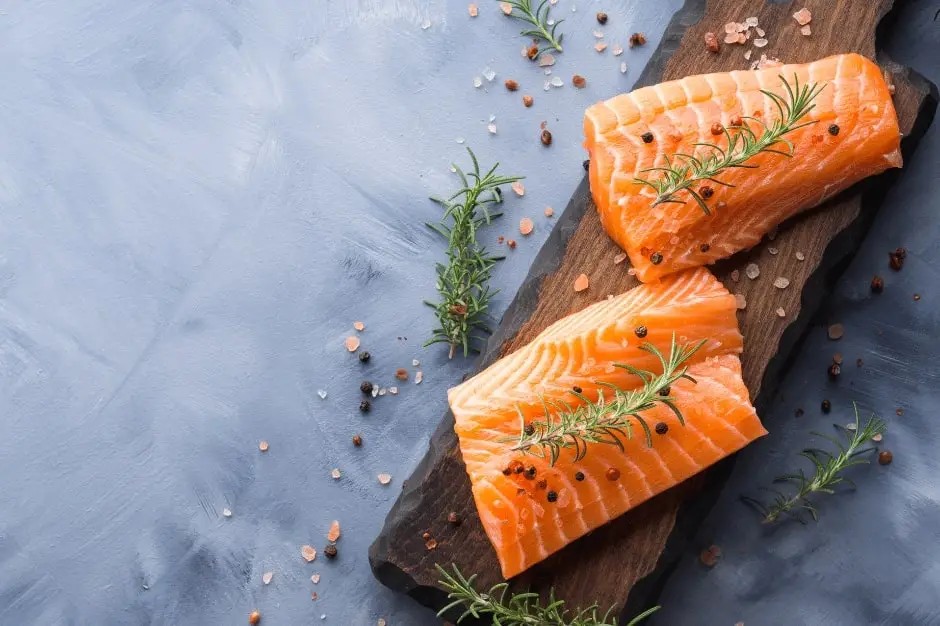
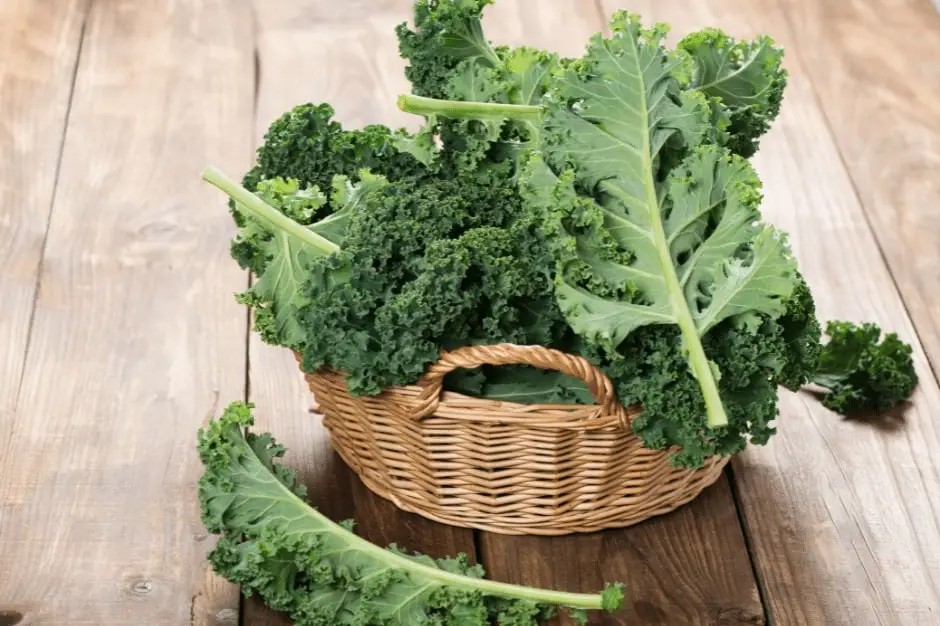
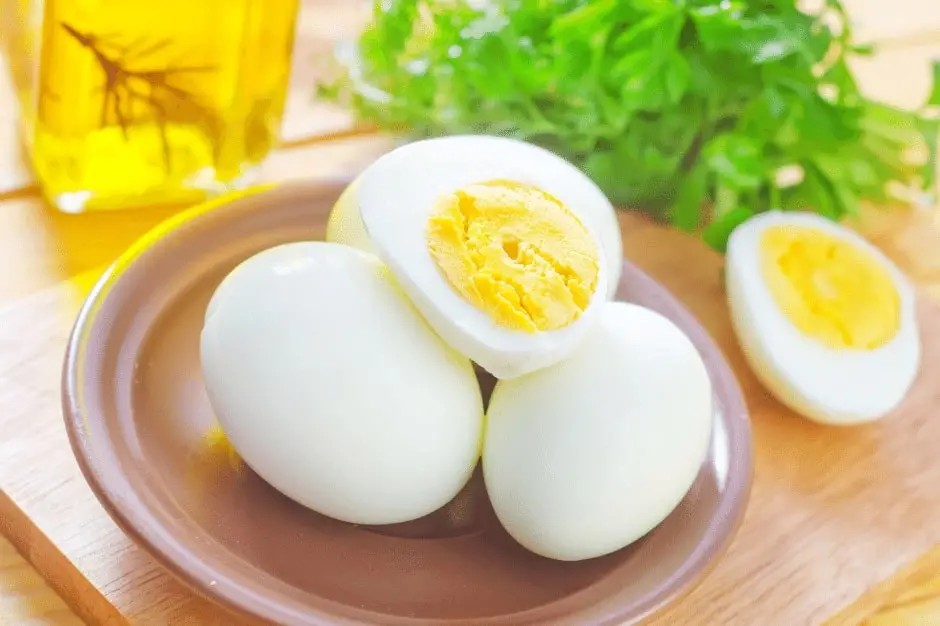
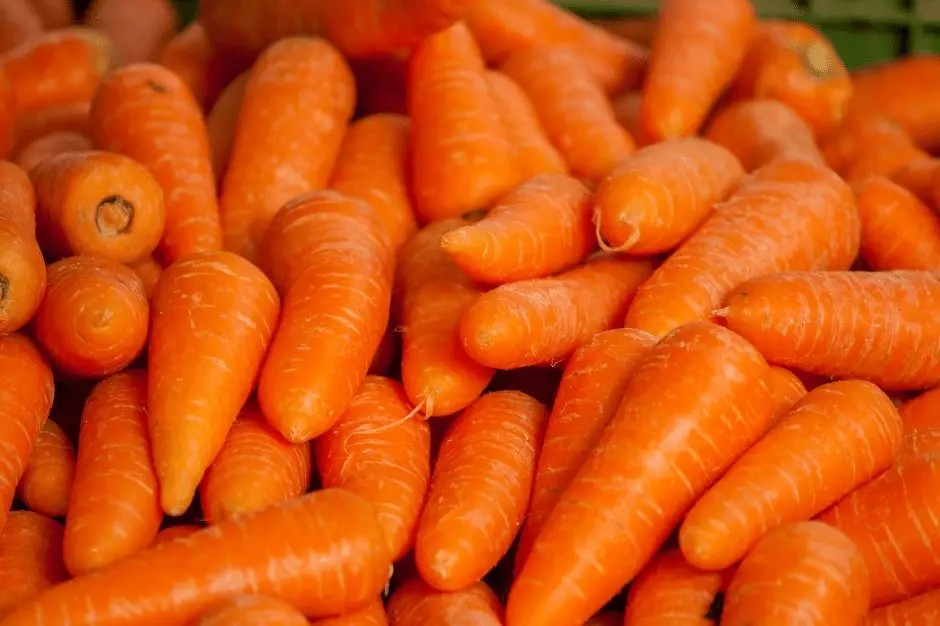
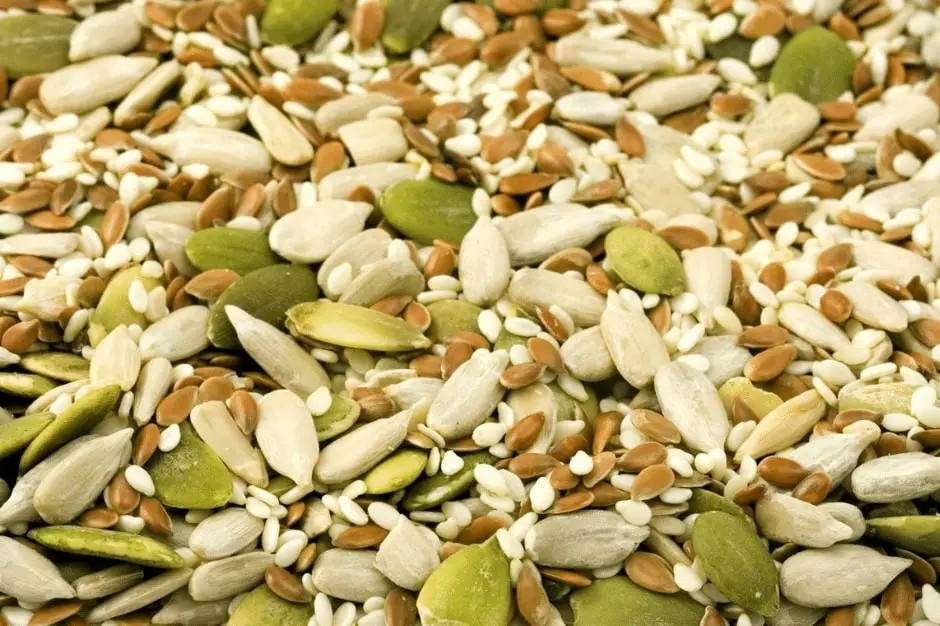
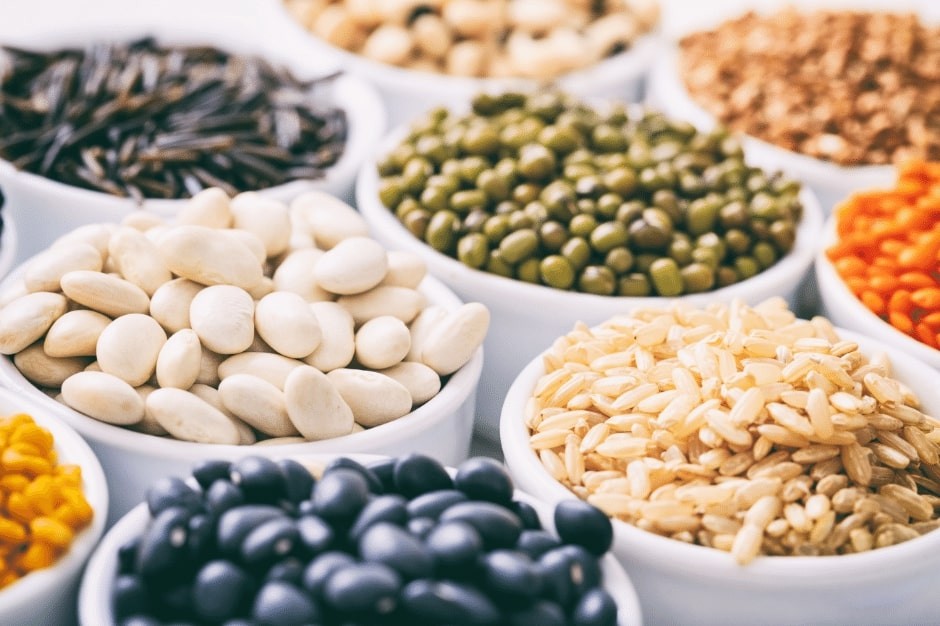
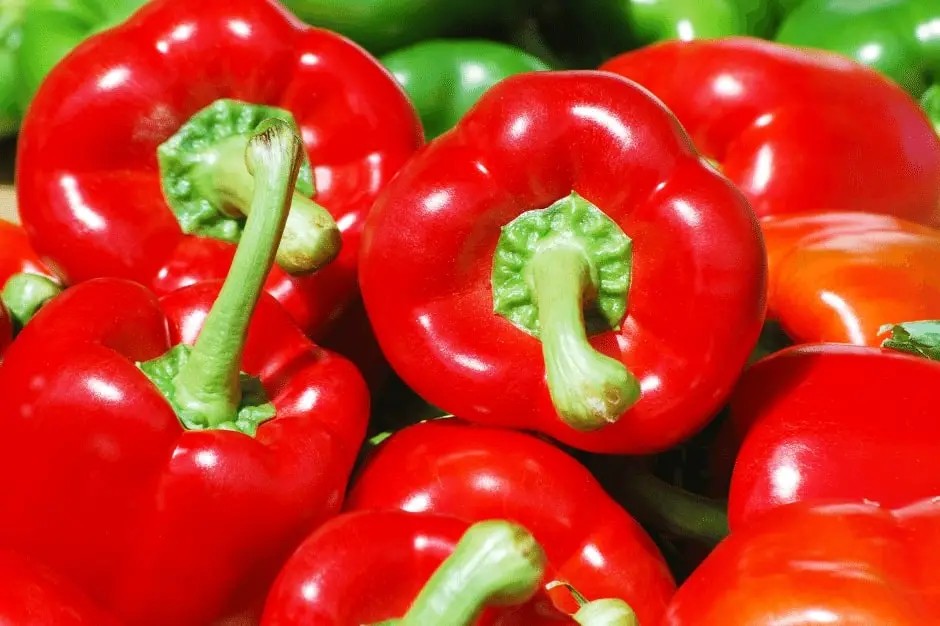
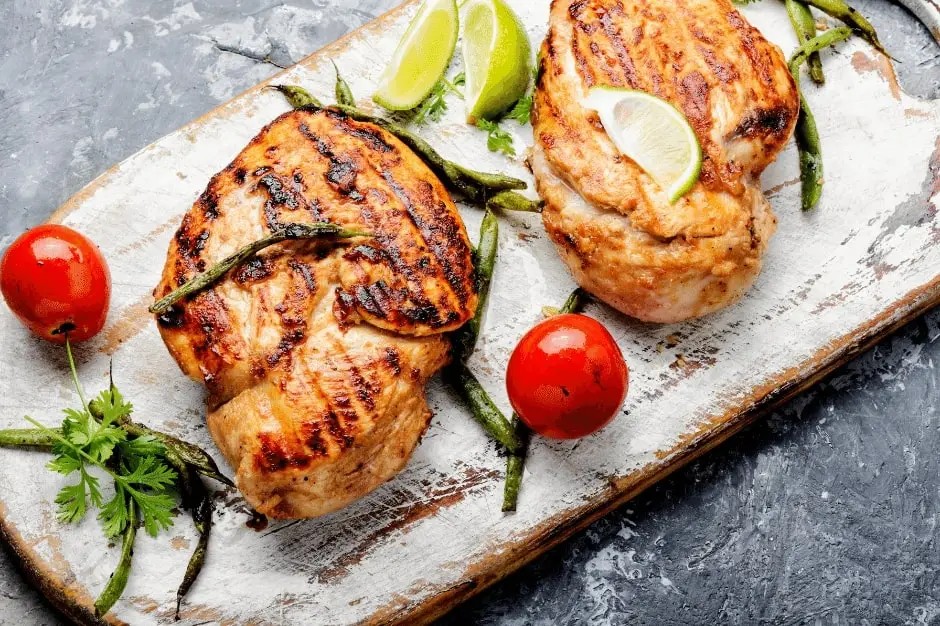
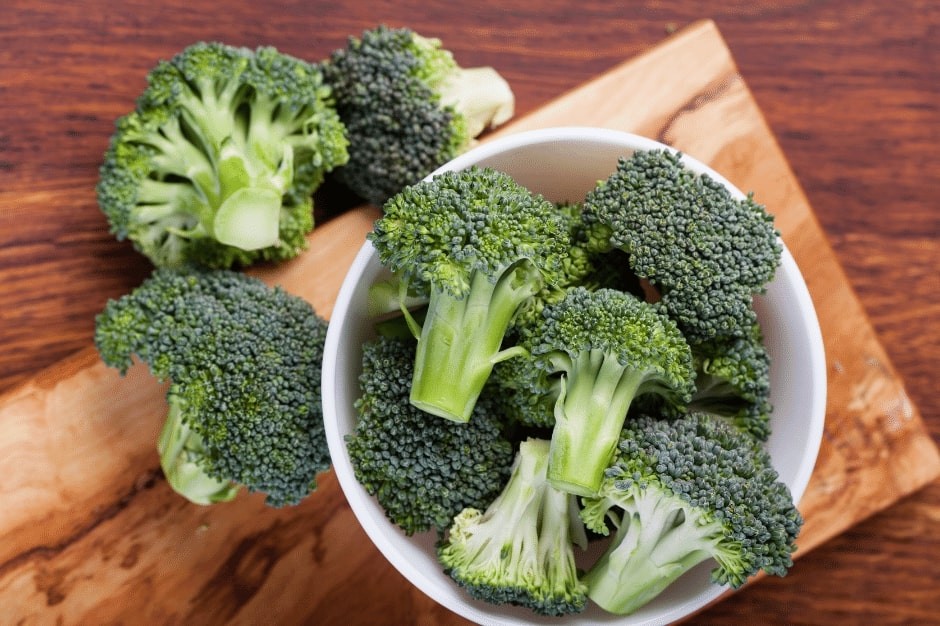
This meal plan ensures a variety of nutrients beneficial for eye health. For more detailed recipes and alternative meal plans, visit FOODS.EDU.VN.
4.2. Recipes for Eye Health
Here are a few recipes that incorporate eye-healthy foods.
4.2.1. Salmon with Roasted Vegetables
- Ingredients: Salmon fillets, broccoli florets, carrots, bell peppers, olive oil, lemon juice, garlic, salt, and pepper.
- Instructions: Toss vegetables with olive oil, garlic, salt, and pepper. Roast at 400°F (200°C) for 20 minutes. Season salmon with lemon juice, salt, and pepper. Bake alongside vegetables for 12-15 minutes.
4.2.2. Spinach and Egg Scramble
- Ingredients: Eggs, fresh spinach, red bell pepper, onion, olive oil, salt, and pepper.
- Instructions: Sauté onion and bell pepper in olive oil. Add spinach and cook until wilted. Whisk eggs with salt and pepper. Pour eggs over vegetables and scramble until cooked.
4.2.3. Berry and Chia Seed Smoothie
- Ingredients: Mixed berries (strawberries, blueberries, raspberries), chia seeds, spinach, banana, almond milk, and honey (optional).
- Instructions: Combine all ingredients in a blender and blend until smooth. Add honey to sweeten if desired.
Find more eye-healthy recipes and detailed instructions on FOODS.EDU.VN.
5. Lifestyle Tips for Eye Health
In addition to diet, lifestyle choices play a significant role in maintaining eye health. Here are some essential tips to protect your vision.
5.1. Regular Eye Exams
Regular eye exams are crucial for detecting eye problems early. An eye exam can identify issues such as glaucoma, cataracts, and macular degeneration before symptoms become noticeable. The American Academy of Ophthalmology recommends that adults get a comprehensive eye exam at least once every one to two years, depending on their risk factors.
Schedule regular eye exams to ensure your eyes are healthy. Consult with your healthcare provider for personalized recommendations.
5.2. Protect Your Eyes from the Sun
Exposure to ultraviolet (UV) radiation can damage your eyes and increase the risk of cataracts and macular degeneration. Always wear sunglasses that block 100% of UVA and UVB rays when you are outdoors, even on cloudy days.
Protect your eyes from the sun by wearing high-quality sunglasses. Look for sunglasses labeled with “100% UV protection” or “UV400.”
5.3. Limit Screen Time
Prolonged screen time can lead to eye strain, dry eyes, and blurred vision. Follow the 20-20-20 rule: every 20 minutes, look at an object 20 feet away for 20 seconds. Also, ensure your workspace is well-lit and your computer screen is at a comfortable distance.
Reduce eye strain by taking regular breaks from screens and adjusting your workspace.
5.4. Stay Hydrated
Dehydration can lead to dry eyes and other eye problems. Drink plenty of water throughout the day to keep your eyes lubricated and functioning properly. The general recommendation is to drink at least eight glasses of water per day.
Stay hydrated by drinking water regularly and including hydrating foods in your diet, such as fruits and vegetables.
5.5. Avoid Smoking
Smoking increases the risk of cataracts, macular degeneration, and other eye diseases. If you smoke, quitting can significantly improve your eye health. Seek support from healthcare professionals or smoking cessation programs to help you quit.
Quit smoking to protect your eyes and overall health.
6. Eye Conditions and How Food Can Help
Specific eye conditions can benefit from targeted nutritional strategies. Understanding how food can support eye health in these cases is essential.
6.1. Age-Related Macular Degeneration (AMD)
Age-related macular degeneration (AMD) is a leading cause of vision loss in older adults. It affects the macula, the central part of the retina responsible for sharp, central vision. A diet rich in antioxidants, lutein, zeaxanthin, omega-3 fatty acids, and zinc can help slow the progression of AMD. The Age-Related Eye Disease Study (AREDS) found that a combination of these nutrients can reduce the risk of advanced AMD by about 25%.
Include foods like spinach, kale, fatty fish, nuts, and seeds in your diet to support macular health. Explore AMD-friendly recipes on FOODS.EDU.VN.
6.2. Cataracts
Cataracts are the clouding of the eye’s lens, leading to blurred vision. A diet rich in antioxidants, particularly vitamin C and vitamin E, can help reduce the risk of cataracts. These antioxidants protect the lens from oxidative damage.
Consume citrus fruits, bell peppers, nuts, and seeds to support lens health. Find cataract-friendly recipes on FOODS.EDU.VN.
6.3. Dry Eye Syndrome
Dry eye syndrome is a condition in which the eyes do not produce enough tears or the tears are of poor quality, leading to discomfort and blurred vision. Omega-3 fatty acids can help reduce inflammation and improve tear production.
Include fatty fish, flaxseeds, chia seeds, and walnuts in your diet to support tear production.
6.4. Glaucoma
Glaucoma is a condition that damages the optic nerve, often due to increased pressure inside the eye. While there is no cure for glaucoma, a diet rich in antioxidants can help protect the optic nerve from damage.
Consume leafy green vegetables, berries, and other antioxidant-rich foods to support optic nerve health.
7. Debunking Common Myths About Food and Eye Health
There are several myths surrounding food and eye health. Let’s debunk some common misconceptions.
7.1. Myth: Eating Carrots Will Give You Super Vision
While carrots are good for your eyes, they won’t give you super vision. Carrots are rich in beta-carotene, which the body converts to vitamin A. Vitamin A is essential for vision, particularly in low light, but it won’t improve vision beyond its normal capacity.
Enjoy carrots as part of a balanced diet, but don’t expect them to give you superhuman eyesight.
7.2. Myth: Only Carrots Are Good for Eye Health
Carrots are just one of many foods that are beneficial for eye health. Leafy green vegetables, citrus fruits, nuts, seeds, and fatty fish are also excellent sources of nutrients that support vision. A balanced diet that includes a variety of these foods is essential for optimal eye health.
Include a variety of nutrient-rich foods in your diet to support your vision.
7.3. Myth: Eye Health Declines Inevitably with Age
While it’s true that the risk of eye diseases increases with age, it’s not inevitable that your eye health will decline. A healthy diet, regular exercise, and protective lifestyle habits can help maintain good vision as you age.
Take proactive steps to protect your eyes and maintain good vision as you age.
8. Consulting with a Healthcare Professional
While diet and lifestyle play a significant role in eye health, it’s essential to consult with a healthcare professional for personalized advice.
8.1. When to See an Eye Doctor
See an eye doctor if you experience any of the following symptoms:
- Blurred vision
- Double vision
- Eye pain
- Redness or itching
- Floaters or flashes of light
- Sensitivity to light
- Difficulty seeing at night
Regular eye exams are also essential, even if you don’t have any symptoms.
8.2. Working with a Dietitian
A registered dietitian can help you create a personalized meal plan that meets your specific nutritional needs for eye health. They can also provide guidance on how to incorporate eye-healthy foods into your diet and address any dietary restrictions or concerns.
Consult with a dietitian for personalized meal planning and nutritional advice.
9. Practical Tips for Incorporating Eye-Healthy Foods Into Your Diet
Making simple changes to your daily routine can help you incorporate more eye-healthy foods into your diet.
9.1. Start Your Day with an Eye-Healthy Breakfast
Begin your day with a breakfast that includes eye-healthy foods. Some ideas include:
- Scrambled eggs with spinach and red peppers
- Oatmeal with walnuts and banana slices
- Smoothie with spinach, berries, and almond milk
9.2. Snack Smart
Choose snacks that are rich in nutrients that support eye health. Some healthy snack options include:
- Carrot sticks with hummus
- Almonds or walnuts
- Sliced bell peppers with guacamole
- Greek yogurt with honey and chia seeds
9.3. Add Leafy Greens to Every Meal
Incorporate leafy greens into your meals whenever possible. Add spinach to your smoothies, salads, and omelets. Use kale as a base for salads or sauté it as a side dish.
9.4. Cook with Eye-Healthy Oils
Use oils that are rich in omega-3 fatty acids and vitamin E, such as olive oil, flaxseed oil, and sunflower oil. These oils can help protect your eyes from damage and reduce inflammation.
9.5. Plan Your Meals
Planning your meals in advance can help you make healthier choices and ensure you get enough of the nutrients that support eye health. Take some time each week to plan your meals and create a shopping list.
10. The Role of FOODS.EDU.VN in Promoting Eye Health Through Nutrition
FOODS.EDU.VN is dedicated to providing comprehensive information and resources on how to improve your health through nutrition. Our website offers a wealth of articles, recipes, and meal plans that focus on eye health.
10.1. Explore Eye-Healthy Recipes on FOODS.EDU.VN
FOODS.EDU.VN offers a wide variety of recipes that are specifically designed to support eye health. Our recipes are easy to follow and use ingredients that are rich in the nutrients that are essential for good vision.
Visit FOODS.EDU.VN to discover delicious and nutritious recipes that will help you improve your eye health.
10.2. Stay Informed with Our Articles
Our website features articles that provide in-depth information on the latest research and recommendations for eye health. Stay informed about the nutrients that are essential for good vision and learn how to incorporate them into your diet.
Visit FOODS.EDU.VN to stay up-to-date on the latest news and information about eye health and nutrition.
10.3. Connect with Our Community
Join our online community to connect with other people who are passionate about eye health and nutrition. Share your experiences, ask questions, and get support from others who are on the same journey.
Visit FOODS.EDU.VN to connect with our community and get the support you need to improve your eye health.
Prioritize your eye health by incorporating the right foods and lifestyle choices into your daily routine. Remember, what you eat plays a crucial role in maintaining good vision and preventing eye diseases. Explore FOODS.EDU.VN for more in-depth culinary knowledge, healthy recipes, and dietary advice. Take the first step towards a brighter, healthier future for your eyes today.
Are you ready to transform your diet and protect your vision? Visit FOODS.EDU.VN now to discover a wealth of delicious, eye-healthy recipes and expert nutritional advice. Don’t wait – start your journey to better eye health today!
For more information, contact us:
- Address: 1946 Campus Dr, Hyde Park, NY 12538, United States
- WhatsApp: +1 845-452-9600
- Website: foods.edu.vn
Frequently Asked Questions (FAQs) About Food for Eye Health
Here are some frequently asked questions about how food affects eye health, providing you with quick and informative answers.
1. What are the best foods to eat for improving eyesight?
The best foods for improving eyesight include fatty fish (salmon, tuna), leafy greens (spinach, kale), eggs, carrots, citrus fruits, nuts, seeds, beans, bell peppers, lean meats, and poultry, all rich in essential nutrients like omega-3 fatty acids, vitamins A, C, E, lutein, zeaxanthin, and zinc.
2. How does vitamin A help with eye health?
Vitamin A is essential for vision, particularly in low light, and it supports the proper functioning of the cornea, helping to prevent night blindness and other eye problems.
3. What is the role of lutein and zeaxanthin in protecting my eyes?
Lutein and zeaxanthin are carotenoids that act as antioxidants, protecting the macula from harmful blue light and reducing the risk of age-related macular degeneration (AMD) and cataracts.
4. Can eating fish really improve my eye health?
Yes, eating fatty fish like salmon and tuna can significantly improve eye health due to their high omega-3 fatty acid content, which helps reduce inflammation, support retinal function, and prevent dry eye syndrome.
5. Are there any specific foods I should avoid for better eye health?
While no foods are strictly off-limits, it’s best to limit processed foods, sugary drinks, and unhealthy fats, as they can contribute to inflammation and oxidative stress that may harm your eyes.
6. How can I incorporate more eye-healthy foods into my daily diet?
Incorporate eye-healthy foods by starting your day with an eye-healthy breakfast, snacking on nuts and seeds, adding leafy greens to every meal, cooking with eye-healthy oils, and planning your meals in advance to ensure a balanced and nutritious diet.
7. Is it necessary to take supplements for eye health if I eat healthy foods?
If you eat a well-balanced diet rich in eye-healthy foods, you may not need supplements. However, if you have specific dietary restrictions or eye conditions, consult with a healthcare professional to determine if supplements are necessary.
8. Can a poor diet lead to vision problems?
Yes, a poor diet lacking essential nutrients can lead to various vision problems, including age-related macular degeneration (AMD), cataracts, dry eye syndrome, and other eye conditions.
9. How does vitamin C protect my eyes from damage?
Vitamin C is a powerful antioxidant that helps protect the blood vessels in your eyes and reduces the risk of cataracts by neutralizing free radicals and preventing oxidative stress.
10. What lifestyle changes can complement my diet to improve eye health?
Complement your diet with lifestyle changes like regular eye exams, protecting your eyes from the sun with sunglasses, limiting screen time, staying hydrated, and avoiding smoking to maintain optimal eye health.